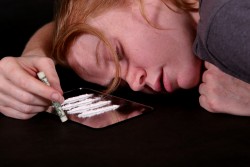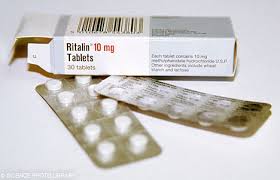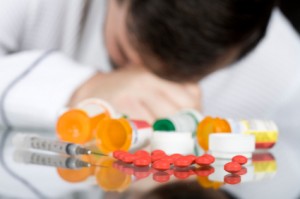Signs of Cocaine Use You Can’t Ignore
Cocaine abusers have telltale signs that you won’t be able to ignore if you know what to look for. If you are concerned that someone you know might be abusing cocaine, now is the time to learn the signs of cocaine use and look for them in your friend or loved one.
As stated by the NIDA, 14.3% of individuals aged 12 or older have used cocaine in their lifetime. The possibility for addiction is real, and the drug itself is dangerous. It is important to know the signs of cocaine use and to be ready to seek treatment for your loved one.
Physical Signs of Cocaine Use

There are a variety of signs of cocaine abuse.
There are actually many noticeable and sometimes dangerous physical signs of cocaine abuse which you will want to be aware of if you are concerned that your loved one might be abusing the drug. For example, the NIDA states, “Many chronic cocaine users lose their appetite and experience significant weight loss and malnourishment.” This can lead to many other issues, including making the person extremely sick if they are not treated. You cannot ignore the sign of extreme weight loss and malnourishment.
Other physical signs of cocaine use that will be easy to spot are:
- The issues that are caused by snorting cocaine
- “Different routes of cocaine administration can produce different adverse effects.” Since snorting cocaine is a common method of abuse among users, issues like regular nosebleeds, hoarseness, and a constantly runny nose will be common.
- The individual might also lose their sense of smell, a medical condition called anosmia.
- The issues that are caused by injecting cocaine
- Injecting cocaine causes its own physical issues including track marks (which the user may have most commonly on their arms and attempt to hide with long sleeves).
- The user may also have allergic reactions “either to the drug or to some additive in street cocaine.” This could possibly result in death so the individual should be treated right away if this occurs.
- Heart attacks
- Heart attacks are much more common among individuals who abuse cocaine. They can often be deadly, especially if the person does not receive treatment right away. “Cocaine-related deaths are often a result of the heart stopping (cardiac arrest) followed by an arrest of breathing” (NIDA). These kinds of reactions are signs of cocaine overdose, and you should call 911 immediately if you see your loved one exhibiting them.
- High body temperature
- The person, especially when on cocaine, will look flushed much of the time and feel warmer to the touch. They might also sweat more than usual. Cocaine increases the body temperature as well as the heart rate and the blood pressure.
- Dilated pupils
- Someone who is currently high on cocaine will have very large or dilated pupils. This is a sign that can help you differentiate between different types of drug abuse. For example, opioid abusers will have small pupils when they are intoxicated and stimulants (the class to which cocaine belongs) cause the opposite effect.
The individual may also complain of issues that you won’t be able to see or notice yourself. Some of these can be unobservable symptoms and others may be issues that you wouldn’t normally see in your specific contact with them. It is important to be aware of the individual mentioning any of these symptoms, as they can also point to cocaine abuse:
- Chronic headaches
- Gastrointestinal problems like abdominal pain, nausea, etc.
- Insomnia
- Sexual dysfunction which can occur “in both males and females” (CESAR)
- Impotence
- “Reproductive damage and infertility” which can occur after long-term cocaine abuse
- Lung and breathing problems
There is also a high possibility that the individual could contract diseases such as HIV or Hepatitis through the sharing of needles or risky sexual behaviors. If this occurs, the individual will need to be treated for cocaine abuse as well as the physical effects of these conditions. Knowing that these are possible signs of cocaine abuse will make them difficult to ignore.
Behavioral Signs of Cocaine Use
A person abusing cocaine will also exhibit many strange behavioral signs that you should not ignore. If you notice these signs in a friend or loved one, it could point to cocaine use or even addiction. Here are some of the more common behaviors caused by cocaine:
- Intense paranoia
- People become especially paranoid about others keeping them from abusing drugs. Over time, they may also develop a paranoid psychosis as result of long-term cocaine abuse. This type of psychosis is temporary but can be extremely dangerous. The individual will show signs of:
- Losing touch with reality (having hallucinations, becoming incredibly paranoid)
- Delirium
- Aggression and possible violent behavior
- Panic attacks
- Anxiety
- Irritability
- Confusion
- Anxiety
- The individual’s anxiety will actually become more intense the longer they abuse cocaine. According to the NIDA, “Users can also become more sensitive to cocaine’s anxiety-producing, convulsant, and other toxic effects” the longer they continue to abuse the drug (NIDA 2).
- Restlessness
- Sudden changes in who they spend time with and only wanting to spend time with others who abuse cocaine
- Disinterest in those activities which used to make the individual happy
- Withdrawal symptoms that will cause them to feel depressed, anxious, irritable, and extremely fatigued.
- People become especially paranoid about others keeping them from abusing drugs. Over time, they may also develop a paranoid psychosis as result of long-term cocaine abuse. This type of psychosis is temporary but can be extremely dangerous. The individual will show signs of:
When a person is abusing cocaine, they will first feel the rush of euphoria and alertness so they will become extremely happy, energetic, and excited. But many people experience a change in mood while still on the drug, suddenly feeling the negative effects. These emotions will show in the individual’s behavior.
Also it will be common for them to binge on the drug, seeming completely alert and energetic for several days, possibly not sleeping, and then suddenly crashing, sleeping, and feeling sad for a while afterward. This is called a binge-crash pattern and is common among cocaine abusers while also being fairly noticeable.
If your loved one is exhibiting the physical and behavioral signs of cocaine abuse, you should get them treatment immediately. According to the NLM, “It is easy to lose control over cocaine use and become addicted.” Make sure not to ignore the signs of cocaine use and to get your loved one treated now.



